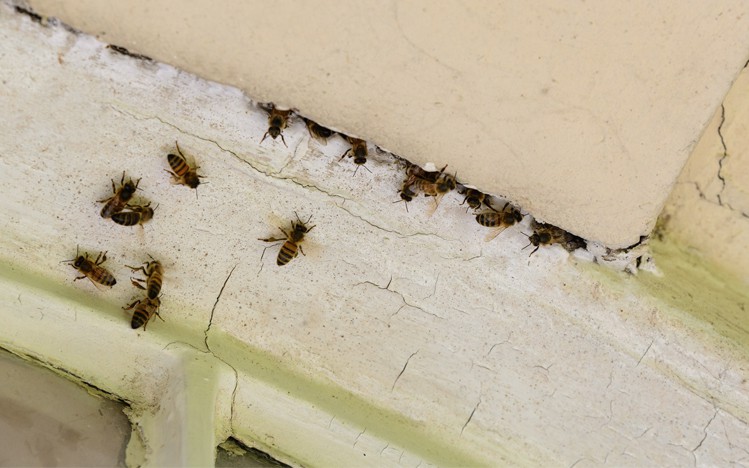
Can You Identify Masonry Bees?
April may seem to be too early to see bees around your property. however, this isn’t the case with masonry bees.
This particular species of bee starts cropping up at this time of year. indeed, you may already have seen them around your property. You might spot them on the walls of your home, or perhaps even on the roof. Oftentimes, there is nothing to worry about, but in reality you may still wish to get some expert advice about them.
You’d be forgiven for thinking they are wasps, due to their appearance. However, these bees can be seen from March through until May, and you can see them flying around from April onwards. That’s why you may not see or notice them until about this time. They tend to like sunny weather, so as the days get warmer and sunnier (we hope!) you may be more inclined to see them flying around. Look at the south-facing side of your property to stand a better chance of seeing them.
So let’s find out a little more about masonry bees. Firstly, they can sometimes be referred to as mortar bees, and there is a very good reason for that. They sometimes live in the mortar joints between bricks, and if the bricks themselves are soft, they’ll make a home inside them, too.
This is why it pays to be aware of masonry bees and to be alert to the presence of them around your home. Typically speaking, a few odd masonry bees shouldn’t cause any problems. However, if you have a colony of them (and you may not know for sure if you have or not), you should consider having something done about them. You may not think bees could destroy the fabric of the bricks holding up your home, but in reality they can do if there is a nest present. Some bees can burrow extensively – and masonry bees are among them.
Very few properties will be affected to this extent. However, if you see these bees around your home (especially if you see more than one of them) it is worth calling in the experts to assess the situation. Once the bees have gone, you can get your mortar joints repointed and deal with any other damage that has been done. This in turn will restore your property to its proper state, so the bees cannot come back.
